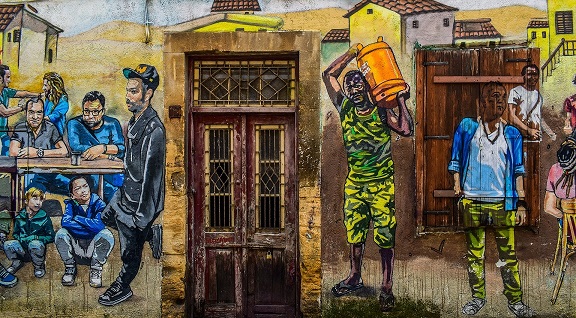Migration: There are over 65 million people in the world today who have been forcedly displaced; 22 million of whom are refugees and people under the age of 18 make up over half of them. Atleast 2.5 million adolescents (12-17) were displaced in 2014.
The number of people who are migrating away from unemployment or abusive work conditions, insecure legal status or marginalization is even higher. Among them, youth are facing special challenges, because they are often expected to support their family and find work at all costs instead of going to school and preparing for the future.
Migrant youth are often viewed as a drain on society and a source of competition with locals for scarce jobs. This distorts public perception and immigration policy.
Another phenomenon caused by the huge migration flows is the flourishing industry of human trafficking, causing thousands of death each year.
Forced Labour: Having to find work at all costs and not being qualified for highly-paid jobs, unclear legal status and the denial of work permits to create the surroundings for explosive work conditions like child labour, slave labour, prostitution and other unethical working conditions.
Hazardous work can cause injuries, long-term damage or death to children and youth. Prostitution will obviously cause trauma and the spread of sexually transmitted diseases. Lastly, desperate people are forced to work for any wage, thereby causing resentments among other parts of the population who fear their jobs being taken away from them.
Urbanisation: Many young people and entire families have to leave rural areas because it is virtually impossible to find work outside of cities. This turns urban areas into mega-cities of ten of millions of people and causes the sudden emergence of large shanty town areas where basic infrastructure, health and sanitary services are often missing. Bad living and working conditions may result in drug abuse and criminality.
